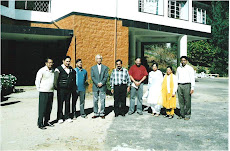This article is based on the book: Principle-Centered Leadership By Stephen R. Covey
 The Big Idea
The Big Idea
When things go wrong - whether in your personal or professional life - chances are you resort to quick-fix plans, strategies and techniques for altering and improving your environment. Often, the problem is caused by a misalignment of your actions and decisions with the correct principles. To solve it, you need to alter not the external circumstances but your perspective.
Best-selling author Stephen Covey introduces a new management paradigm that can help you transform, not only your organization, but your personal relationships as well. He reveals how you can achieve effective personal and organizational leadership by centering your actions and decisions on a set of time-tested principles.
Part One: Placing Principles at Your Center
Do most of the following apply to your organization?
• Interdepartmental rivalries
• Subgroups polarized around key philosophical issues
• Back-talking and bad-mouthing
• Cosmetic niceties on the surface exchanges
• Unionized; with people working on two cylinders
• Deep, entrenched interests between departments
• Special contests and promotions constantly going on to make sales quotas
These are signs of imbalance or misalignment. They indicate that you are using the wrong paradigm in your organization, that you are centered not on solid principles but on distorted values and beliefs.
Principles vs. Values
An example of a value is: The more profit we get, the better our organization will be and the better the lives of our members. An example of a correct principle would be: Profit should come second to ethical considerations.
Both values and principles can dictate our behavior and how we judge and evaluate our environment. How are they different?
Values are subjective, temporary maps that show us where to go or what to do given a particular situation. They can become obsolete when the situation changes. Values represent our cultural influences, personal discoveries and family scripts. They vary from person to person, or, more accurately, from role to role. A single individual can carry with him several sets of values for each of his different roles - child, sibling, parent, spouse, friend, lover, executive - and these values can contradict each other, and change over time depending on the person's newly acquired experiences and insights.
Principles are like compasses that point us to our true direction. They are objective, unchanging natural laws that are correct and relevant regardless of the external circumstances. They are timeless, universal behavioral standards that have governed the social values of all the great human societies and civilizations. They apply to all people and all roles at whatever time and place and in whatever situation. Examples are fairness, equality, justice, integrity, honesty and trust. .
 The Big Idea
The Big IdeaWhen things go wrong - whether in your personal or professional life - chances are you resort to quick-fix plans, strategies and techniques for altering and improving your environment. Often, the problem is caused by a misalignment of your actions and decisions with the correct principles. To solve it, you need to alter not the external circumstances but your perspective.
Best-selling author Stephen Covey introduces a new management paradigm that can help you transform, not only your organization, but your personal relationships as well. He reveals how you can achieve effective personal and organizational leadership by centering your actions and decisions on a set of time-tested principles.
Part One: Placing Principles at Your Center
Do most of the following apply to your organization?
• Interdepartmental rivalries
• Subgroups polarized around key philosophical issues
• Back-talking and bad-mouthing
• Cosmetic niceties on the surface exchanges
• Unionized; with people working on two cylinders
• Deep, entrenched interests between departments
• Special contests and promotions constantly going on to make sales quotas
These are signs of imbalance or misalignment. They indicate that you are using the wrong paradigm in your organization, that you are centered not on solid principles but on distorted values and beliefs.
Principles vs. Values
An example of a value is: The more profit we get, the better our organization will be and the better the lives of our members. An example of a correct principle would be: Profit should come second to ethical considerations.
Both values and principles can dictate our behavior and how we judge and evaluate our environment. How are they different?
Values are subjective, temporary maps that show us where to go or what to do given a particular situation. They can become obsolete when the situation changes. Values represent our cultural influences, personal discoveries and family scripts. They vary from person to person, or, more accurately, from role to role. A single individual can carry with him several sets of values for each of his different roles - child, sibling, parent, spouse, friend, lover, executive - and these values can contradict each other, and change over time depending on the person's newly acquired experiences and insights.
Principles are like compasses that point us to our true direction. They are objective, unchanging natural laws that are correct and relevant regardless of the external circumstances. They are timeless, universal behavioral standards that have governed the social values of all the great human societies and civilizations. They apply to all people and all roles at whatever time and place and in whatever situation. Examples are fairness, equality, justice, integrity, honesty and trust. .




